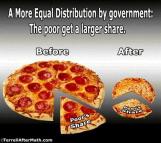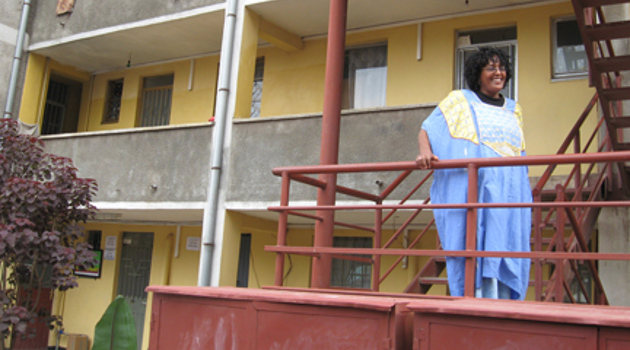There was a book last decade by Thomas Frank, What’s the Matter with Kansas?, that asked why lower-income voters in the state didn’t vote for greater levels of redistribution.
The author claimed these voters were sidetracked by cultural issues, which may very well be part of the story. I like to think that these Kansans also were motivated by ethics and that they realized it would be wrong to use government coercion to take money from other people.
they realized it would be wrong to use government coercion to take money from other people.
And maybe, unlike the folks at the IMF, they were not motivated by envy and they realized that high taxes and more redistribution would make them worse off over time because of the negative impact on overall prosperity.
Well, it appears that the folks in Kansas aren’t that different from people in India, Morocco, Nigeria, Mexico, and South Africa. At least that’s the takeaway from some new research that Christopher Hoy wrote about for the World Bank. Here’s the issue he investigated.
Social commentators and researchers struggle to explain why, despite growing inequality in many countries around the world, there is often relatively limited support among poorer people for policies where they are set to benefit
(such as increases in cash transfers or in the minimum wage). …Conventional theories of preferences for redistribution, such as the Meltzer-Richard Hypothesis, imply that if poor people were made aware they were relatively poorer than most other people in their country, they would become more supportive of redistribution. Yet there is little empirical evidence that evaluates this prediction. …empirical evidence is needed to understand how poorer people’s misperceptions of their relative position in the national income distribution effects their support for redistribution.
Here’s the methodology he used.
I conducted the first cross country survey experiment on preferences for redistribution in the developing world… The experiment involved over 16,000 respondents in five developing countries that make up almost 25% of the global population (India, Nigeria, Mexico, South Africa and Morocco). …To test whether informing poor people of their relative position in the national income distribution makes them more supportive of redistribution, I randomly allocate half of the respondents in each country to be told which quintile their household belongs to in the national income distribution (based upon their reported household income and the number of household members). …After the treatment they were asked if they thought the gap between the rich and poor was too large and whether the government was responsible for closing this gap.
And here are some of the results.
People tend to think they are in the middle of the income distribution, regardless of whether they are rich or poor. …poor people who perceived themselves to be in the bottom two quintiles of the distribution were between 15 to 28 percentage points more likely to prefer lower levels of inequality than poor people who perceived themselves to be in the top two quintiles. …Surprisingly, telling poor people that they are poorer than they thought makes them less concerned about the gap between the rich and poor in their country…there was no effect from the treatment on these people’s support for the government to close the gap between the rich and poor.
Here’s a chart showing how people became less sympathetic to government-coerced redistribution after learning more about their own economic status.
The author speculates on possible reasons for these results.
A plausible channel that is causing this effect is people using their own living standard as a ‘benchmark’ for what they consider acceptable for others. …people…realise two points. Firstly, there are fewer people in their country with a living standard they considered to be relatively poor than they had thought. Secondly, what they had considered to be an ‘average’ living standard (their own standard of living) is actually relatively poor compared to other people in their country. I show how both of these points would lead people to respond by being less likely to be concerned about the gap between the rich and poor in their country. …there are opposing channels through which poorer people’s preferences for redistribution respond to information about their relative position. On the one hand, poorer people may be more supportive if they are set to benefit from redistribution. However, on the other hand they may be less supportive if they are less concerned about the absolute living standard of people who are relatively poor.
These are all plausible answers.
Though I have the same questions about this research as I did about Frank’s book. Do people in these five developing nations have any level of moral aversion to redistribution and/or do they understand (at least implicitly) that a tax-and-redistribute model is a recipe for national economic decline?
Perhaps a more practical way of looking at the issue is to ask whether lower-income people care most about economic growth or economic inequality.
Many of the professional left, including the ideologues at the IMF, are fixated on the latter and they’re willing to hurt the poor if the rich suffer even greater harm (in other words, Margaret Thatcher was right about their motives).
By contrast, I strongly suspect the average lower-income person is far more interested in more prosperity for their family and far less concerned about the prosperity of the rich family on the other side of town. They presumably are unaware of the powerful Chinese data on poverty reduction and inequality, but they instinctively understand that a rising tide lifts all boats.


